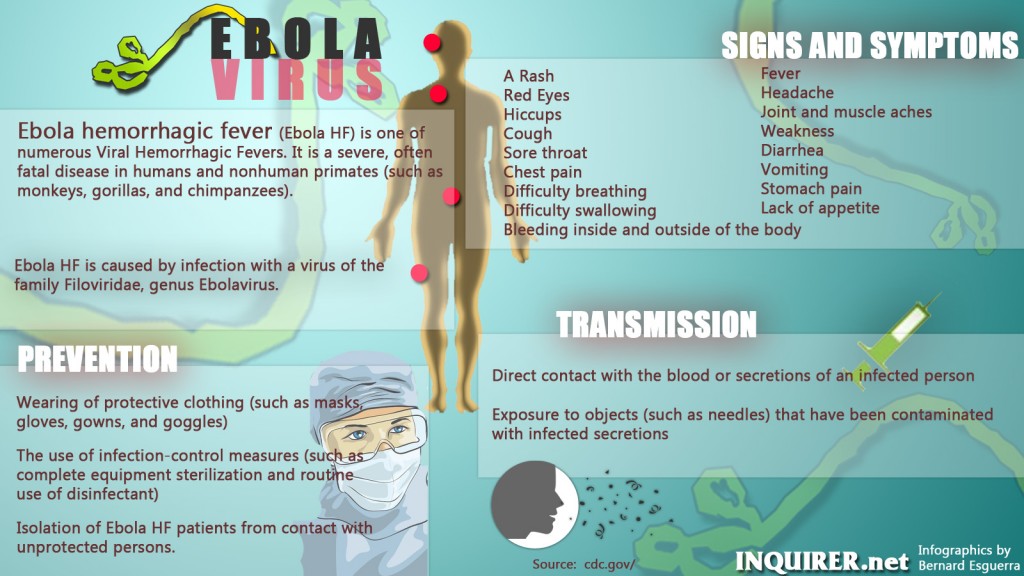MANILA, Philippines — Filipino troops serving in Liberia as United Nations peacekeepers are advised to refrain from “non-essential movements” amid the Ebola outbreak in West Africa.
“There was a health advisory given in the protection of troops since March. This gives direction for measures to be followed to all personnel stationed in affected areas and adjacent areas such as Liberia,” Lieutenant Colonel Ramon Zagala, military spokesperson, told reporters on Friday.
There have been 115 members of the Armed Forces of the Philippines deployed in Liberia since December. They will be on duty from 10 to 12 months.
The contingent in Liberia is headed by Colonel Glicerio Peralta.
“Our contingent is assigned for administrative duty and security their movements are restricted between their accommodations (barracks) and their offices,” Zagala said.
As of May 31 this year, there are about 6,000 troops from dozens of countries serving in the UN peacekeeping mission in Liberia.
The United Nations Peacekeeping Operations Center based at Camp Aguinaldo is closely monitoring the Filipino contingent in Liberia. They receive daily operational and administrative reports.
Zagala said there has been no case of ebola outbreak among UN peacekeepers so far.
“We’d like to assure them all health and safety precautions are being done and led by the UN to ensure that their health and safety will not be compromised,” Zagala said.
Part of the guidelines issued by the UN last March to personnel stationed in affected areas and adjacent to affected areas in Guinea (Lofa County, Upper Nimba County, and Upper Bong County (above Gbarnga) include:
* Restricting all non-essential movement
* Limiting travel of all UN Mission in Liberia offices between offices and accommodation
* Suspending all routine meetings with local interlocutors and communities unless otherwise determined by the relevant chain of command
* Ceasing off-duty movements
* Avoiding direct physical contact, such as handshakes, kissing etc and direct contact with body fluids of infected or dead persons or animals
* Avoiding direct contacts with animals such as fruit bats or monkeys/apes and the consumption of their raw meat. Thoroughly cooking all meat
* Treating water with chlorine before drinking
RELATED STORIES
Ebola-hit west Africa launches emergency battle plan
